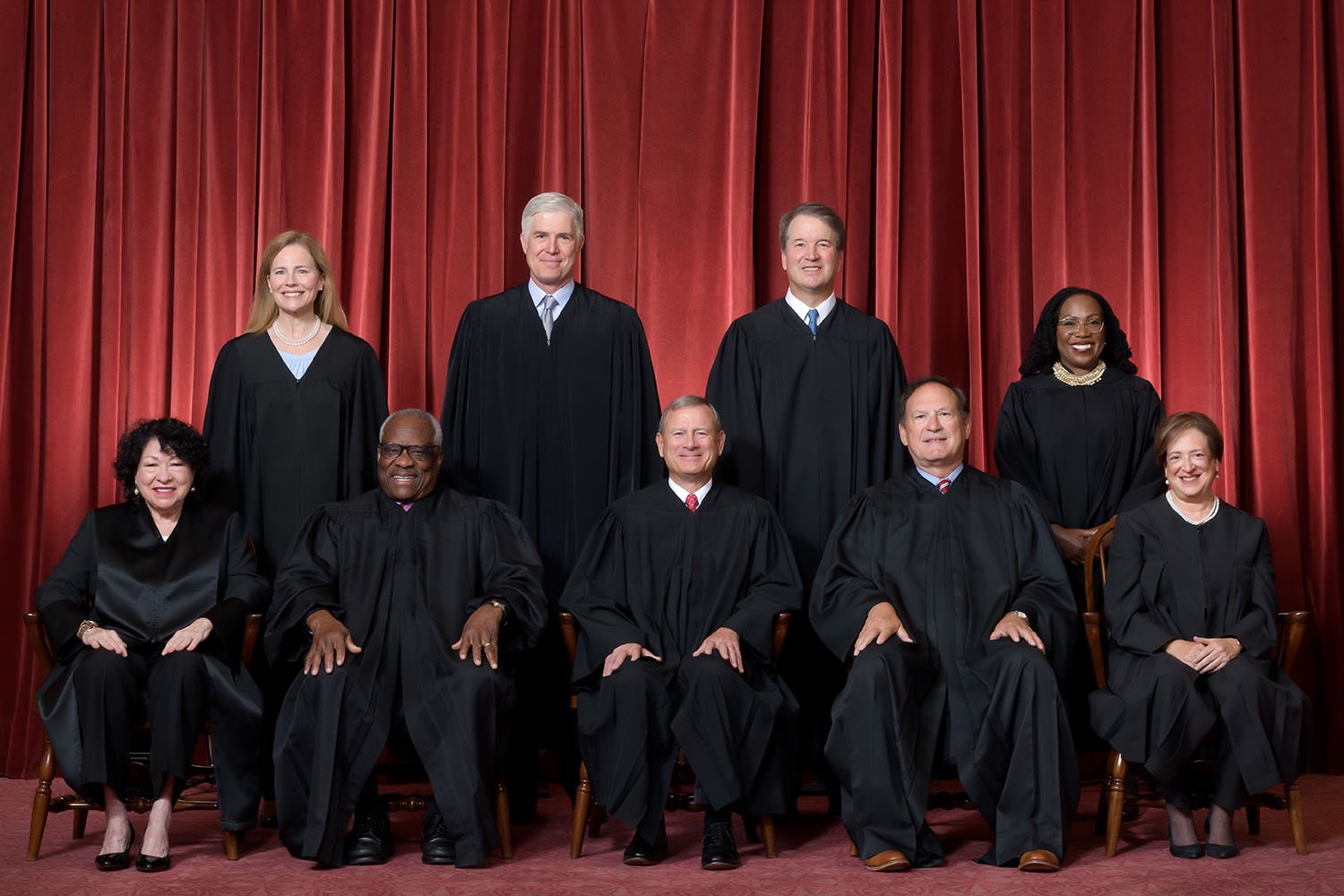WASHINGTON (CN) — Ethics experts have advocated for an off-ramp that allows the Supreme Court to reaffirm its role as a neutral arbiter, but the rejection of accountability for the justices now has court watchers worried about an existential crisis for the court itself.
“This is not going to end well for the court if it doesn't get its house in order or if Congress doesn't step up,” said Virginia Cantor, chief ethics counsel at Citizens for Responsibility and Ethics in Washington.
Increasingly bitter political fights on the court’s docket are colliding with a stream of reports questioning the justices’ neutrality. As a result, some legal experts and the public are left with the impression that the court’s partisan impulses are prevailing over the rule of law.
“Ever since Mitch McConnell helped Donald Trump pack the Supreme Court with extreme ideological justices through two improper confirmation processes, the Supreme Court has grown far more partisan, to the point where many Americans see the court as simply a political institution and not a court of law at all,” Paul Schiff Berman, a law professor at George Washington University Law School, said.
“And justices Thomas and Alito have damaged the court's credibility further by paying no heed to the requirement that they steer clear of any appearance of political partisanship,” he added.
Partisan lens
Lawmakers have continued to add fuel to the fire, suggesting that the justices act in their stead to solve political issues out of their control.
Speaker of the House Mike Johnson suggested the Supreme Court should step in to overturn a unanimous jury verdict finding Donald Trump guilty of 34 felonies. The Louisiana Republican told Fox & Friends that he thought the justices were deeply concerned about the conviction, stating that the high court should “obviously” step in to “set this straight.”
Court watchers saw the highly unusual request — to insert the nation's highest court into a state conviction —as the epitome of the partisan lens some view the court through.
“Given the court's history over the last four years, it is not surprising to me that people on their side would think they would do something completely improper to help the Republican party,” Eric Segall, a law professor at Georgia State University, said in a phone call.
None of the justices has publicly commented on Johnson’s request and legal experts speculate that it is extremely unlikely that the Supreme Court would hear Trump’s appeal at this juncture. But Johnson’s comments give the impression — true or not — that some justices have expressed opinions on how they would vote on a case before it has even reached the high court.
“So, now people think it's actually plausible that the court would somehow reverse Trump's conviction, despite having absolutely no legal grounds for doing so given that this is a New York state case with no real federal issue involved,” Berman said. “This is yet another sign of how the rule of law is being destroyed in this country by an extremist right-wing movement that values loyalty to one man over loyalty to America's democratic rule-of-law values.”
Measures of accountability
The appearance of impartiality has been central to the broader conversation around the justices’ ethics standards. For over a year, court watchers have scrutinized the justices for ethics lapses that could dent the institution’s reputation.
Meaningful efforts to address these concerns have been few and far between, ethics experts say, and leave the court on a collision course with waning public confidence in a branch of government unable to enforce its own rulings.









